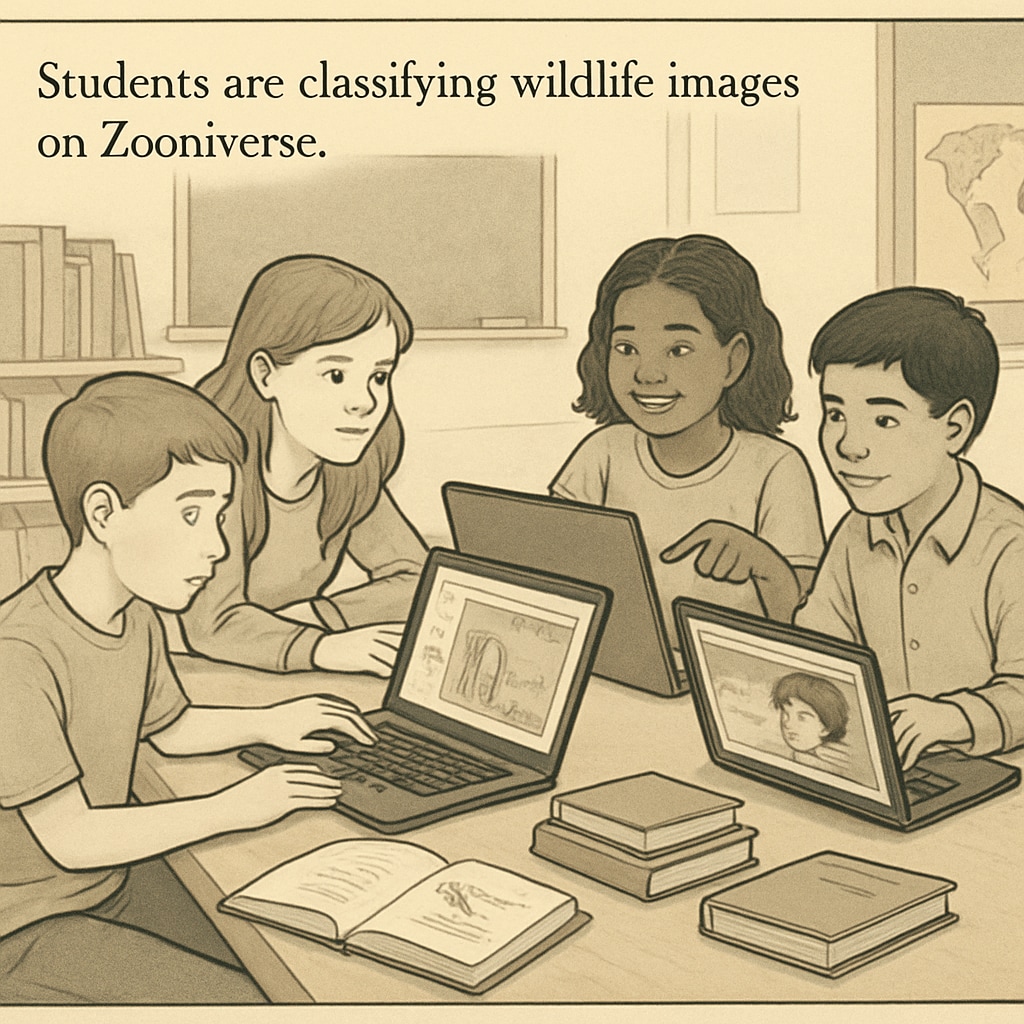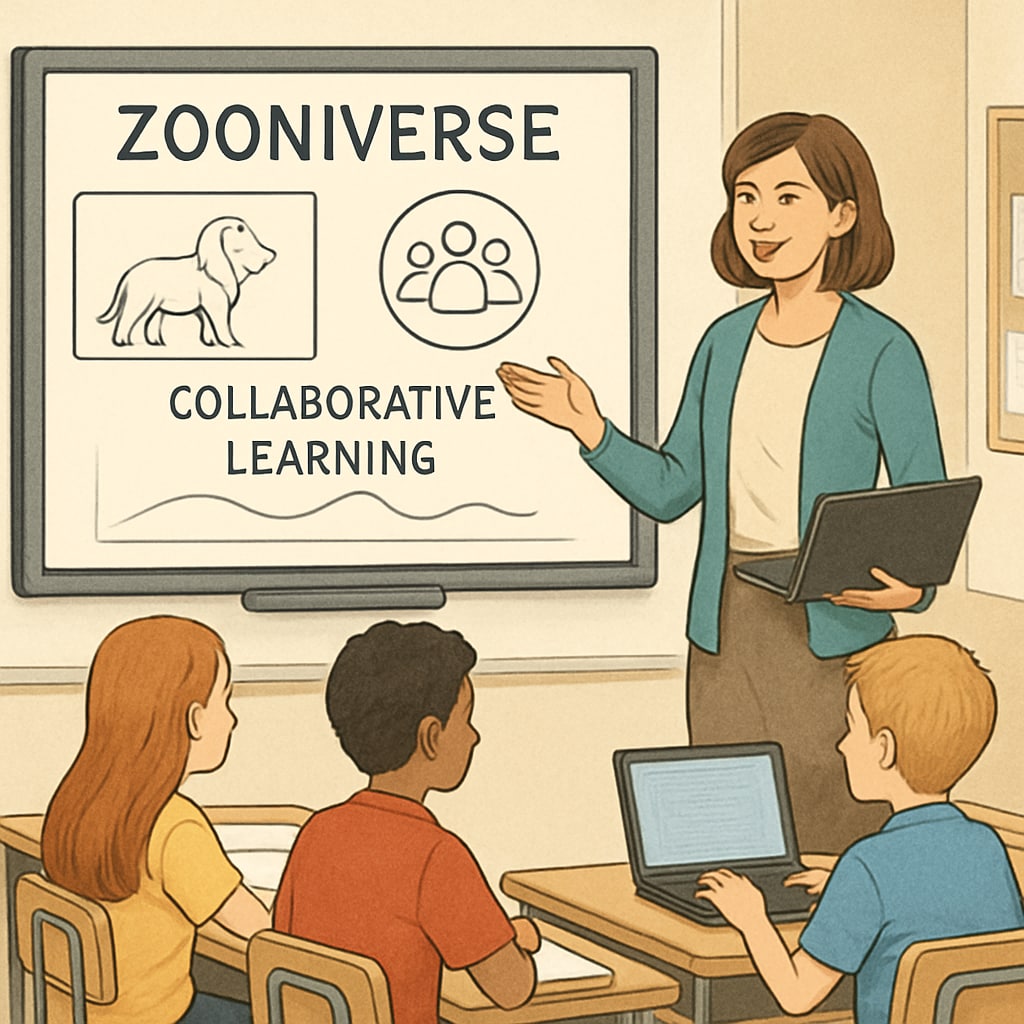Citizen science platforms like Zooniverse are transforming the way students engage with education through real-world scientific projects. By participating in Zooniverse’s diverse initiatives, K12 students not only develop critical thinking and collaboration skills but also gain hands-on experience in scientific inquiry. This article explores how Zooniverse can be seamlessly integrated into classrooms, providing students with unparalleled opportunities to contribute to genuine research while boosting their scientific literacy and enthusiasm.
Empowering Students Through Citizen Science
Citizen science involves public participation in scientific research, allowing individuals to contribute data, analyze findings, or classify information. Zooniverse, one of the largest citizen science platforms, offers projects across various fields—including astronomy, ecology, biology, and history. For example, students can help identify species in wildlife images or analyze historical documents, contributing to ongoing research efforts around the globe.
Integrating Zooniverse into K12 education empowers students by giving them direct access to authentic scientific work. Instead of learning concepts in isolation, students actively apply their knowledge, thus bridging the gap between theory and practice. As a result, they develop skills such as problem-solving, data analysis, and collaboration, all of which are critical for their academic and professional futures.

Why Zooniverse Fits Perfectly Into Modern Classrooms
Modern education emphasizes interdisciplinary learning, critical thinking, and technology integration. Zooniverse checks all these boxes by offering projects that are accessible, engaging, and impactful for students of all ages. Teachers can tailor Zooniverse activities to align with curriculum goals, making it a versatile tool for subjects like biology, earth sciences, and even social studies.
Some key advantages of using Zooniverse in classrooms include:
- Accessibility: Zooniverse projects are free and require only an internet connection, making them accessible to a wide range of schools.
- Scalability: Projects are suitable for both individual and group settings, supporting diverse learning environments.
- Engagement: Students are motivated by the opportunity to contribute to meaningful research, fostering a sense of purpose and achievement.
- Skill Development: Activities promote data literacy, critical thinking, and teamwork, preparing students for future challenges.

How to Integrate Zooniverse Into Your Curriculum
To maximize the impact of Zooniverse in K12 education, educators can follow these steps:
- Choose Relevant Projects: Browse Zooniverse’s extensive library to find projects that align with your curriculum or students’ interests. For instance, astronomy teachers might select projects like “Galaxy Zoo,” while ecology-focused classes may benefit from “Wildlife Watch.”
- Set Clear Objectives: Define what you want students to achieve—whether it’s understanding scientific methods, learning teamwork, or contributing to a specific project.
- Provide Guidance: Offer tutorials or guided sessions to familiarize students with the platform and the project requirements.
- Encourage Reflection: Have students discuss their findings and experiences, fostering deeper understanding and critical thinking.
By following these steps, educators can transform their classrooms into hubs of scientific exploration and innovation. Additionally, Zooniverse projects can supplement STEM learning, making science more approachable and exciting for students.
Conclusion: A Gateway to Lifelong Scientific Enthusiasm
Platforms like Zooniverse are revolutionizing K12 education by making science accessible, engaging, and impactful for young learners. Through hands-on participation in citizen science projects, students develop essential skills and contribute to genuine research endeavors. As a result, they not only deepen their scientific literacy but also cultivate a lifelong passion for discovery and innovation. By integrating Zooniverse into classrooms, educators can inspire the next generation of scientists, researchers, and problem-solvers.
Explore Zooniverse today and unlock the potential for transformative learning experiences in your classroom. To learn more about citizen science, visit Citizen Science on Wikipedia or discover Zooniverse projects at Zooniverse.org.


